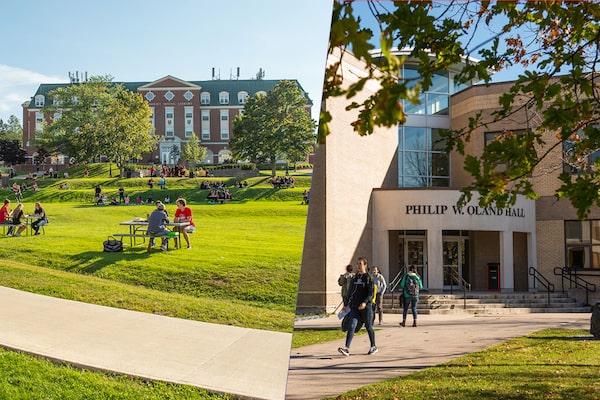
After receiving a biochemistry degree at University of New Brunswick, Natasha Dhayagude co-founded Chinova Bioworks, a company that uses the extract of button mushrooms to reduce food waste.SUPPLIED
When Natasha Dhayagude was a high school student, she could have chosen any university in the country to earn her undergraduate science degree. But nearby University of New Brunswick ticked all the boxes: a beautiful, vibrant campus close to home, small classes taught by distinguished professors and a focus on experiential learning and academic excellence.
Her choice paid off. Dhayagude, a 2014 graduate, says her biochemistry degree helped her co-found Chinova Bioworks, a company that uses the power of mushrooms to reduce food waste.
“UNB provided me with the experiential learning that I needed to help solve real-world problems,” says the company’s chief executive officer, adding that rather than pursuing more traditional paths to biochemistry research or health care, she soon realized she wanted to commercialize a product and launch a company. “I wanted to bring the research to life.”
The Fredericton-based start-up uses an extract of common white button mushrooms to create natural food preservatives for food and beverage companies that are looking for alternatives to artificial preservatives such as sodium benzoate or potassium sorbate. The ingredient, called Chiber (pronounced KYE-ber), improves quality, freshness and shelf-life, but without a discernable mushroom taste. The company currently employs 25 people, 90 per cent of whom are woman with STEM backgrounds, including some fellow UNB graduates.
Paul Mazerolle, president and vice-chancellor of UNB – and himself a 1989 alumnus – calls the university “a special place” that puts its 9,000 students at the core of everything it does, and contributes to global economic, social and cultural development.
“We exist to change the world,” he says. “We do it through our students, our research and our partnerships. Many of our students graduate with a sense of appreciation and reflection. They know they have an opportunity to make a difference.”
Initially, Dhayagude had 100 people in some of her classes, but by the time she reached third and fourth years, many of her specialized biochemistry classes had only nine or 10 students.
Not only did she forge life-long friendships with them, she also got to know her professors. She says the bonds are so strong, that some of her former classmates even invited faculty members to their weddings years later.
“You just don’t get that at any other university. It’s a very cozy, friendly atmosphere,” she says. “It’s a great university and it’s very connected.”

Supporting students and inspiring them to reach higher are top priorities at UNB. To manage the transition to virtual lectures as a result of the pandemic, many faculty members trained during the summer on how to be more effective instructors online.SUPPLIED
That sense of connection also helps forge relationships between UNB’s own researchers and industry. Faculty members in engineering and science are routinely approached by major organizations, such as NASA and the Canadian Space Agency, IBM and Siemens, to work together. Once voted “most entrepreneurial university in Canada,” approximately 140 companies have been created within the past 10 years in conjunction with the university.
“We’ve got a real focus here on building knowledge with purpose,” says Mazerolle.
There’s also an emphasis on experiential learning and extracurricular experiences at UNB. Dhayagude says her work in the lab at school gave her the knowledge needed to start experimenting with mushroom fibre years later, but she also honed her organizational, networking and leadership skills by participating in extracurricular activities that put her in charge of running school-wide events.
Mazerolle says the experiential learning opportunities available in every faculty give students a leg up and help UNB graduates secure or – in Dhayagude’s case – create jobs.
UNB helped her connect with graduates with technical degrees when she needed to hire new employees for her growing company. She says she was determined to change the narrative about New Brunswick and show the world it was possible to find highly qualified, talented employees right in her own backyard.
Looking back at her time at UNB, Dhayagude says studying in such a supportive, student-focused atmosphere gave her the confidence to launch her own business and generate millions in seed money. And although she currently lives and works in Toronto to drum up funding and build out a sales team, UNB and New Brunswick are never far from her mind. Her university nurtured belief in herself and her ability to change the food industry.
“Growing and learning in that atmosphere really helps you get out of your comfort zone,” she says. “[UNB] pushes you forward.”
Advertising feature produced by Globe Content Studio. The Globe’s editorial department was not involved.